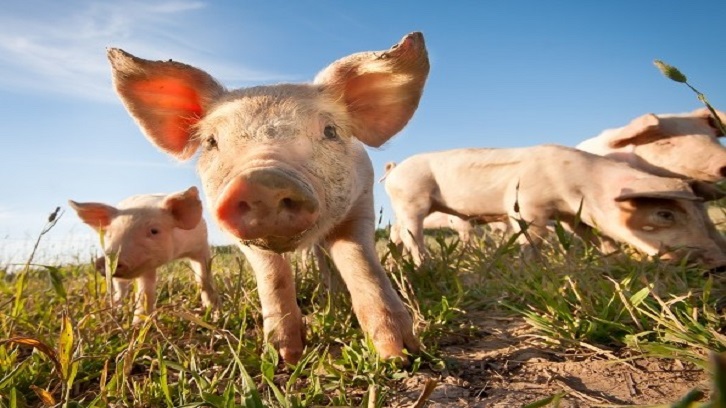Porcine immunology: Lessons for a better comprehension of SARS-CoV-2

The porcine epidemic diarrhoea virus is a coronavirus with a great impact on the worldwide swine industry. A UAB-CReSA research team has analysed the immunity against this virus and have drawn conclusions that can be extrapolated to human SARS-CoV-2.
In swine species more than six different coronavirus have been described, being porcine epidemic diarrhoea virus (PEDV) the one that has had the greatest impact worldwide. PEDV shows a high basic reproduction number (R0); as a result, when enters in a farm for the first time, it is swiftly transmitted across all animals. Because of that, it might be expected that the population would develop a solid and uniform herd immunity, that would prevent new infections. Nonetheless, recurrent PEDV infections are frequent in farms. One of the causes behind this fact would be the development of short-term immunity; if so, after some time animals could became infected again, even by the very same strain of virus that already infected them before. Therefore, one of the main questions to clear up, which can offer insights about how to address the disease control and apply a potential vaccine, is to know the extent of immunity.
The main objective we set out in our study was to characterize the immunity against PEDV, after an initial inoculation and a subsequent homologous challenge –that is inoculating the very same strain used in the initial infection–, to evaluate protection in the long-term (five months). The study was carried out in two phases, as detailed in the figure.
During Phase 1 we observe virus excretion for 10-14 days, although in some animals it extends up to one month and a half.. Five months after infection, neutralizing antibodies are detected in 77% of the animals. We find large differences among commercial kits intended to detect of antibodies, especially in late phases; at five months, kit A detected 92% of the positives, kit B only 27% and kit C was not able to detect any. These phenomena have also been observed for SARS-CoV-2 in humans. In Phase 2 we proceed with the homologous challenge (Group A), observing an increase in cellular and humoral immune responses (antibodies), which demonstrates the existence of immunological memory. However, all animals were infected, so we cannot consider immunity as sterilizing.
Definitely, the results demonstrate that five months after the initial infection there was not sterilizing immunity. Even in the presence of neutralizing antibodies, all animals in Group A were infected by the very same virus strain against which they developed immunity. However, those animals excreted less virus, during shorter periods and had milder clinical signs compared to the first inoculation –at four weeks of age–, or to those animals inoculated for the first time at 6 months of age (Group B). To sum up, 1) Five months after the initial inoculation the immunity developed by animals in Group A was not sterilizing; 2) Nonetheless, immunity played an important role indeed, limiting clinical signs and infection. Both conclusions can be extrapolated to many of the situations that we have observed during the SARS-CoV-2 pandemic in humans: in some occasions vaccination or previous infection does not prevent reinfection, not even by the same variant of the virus, but it does limit the duration of excretion and the severity of the clinical signs.
1- IRTA, Animal Health Research Center (CReSA, IRTA-UAB), Universitat Autònoma de Barcelona
2- Department of Animal Health and Anatomy, Universitat Autònoma de Barcelona
References
Díaz I, Pujols J, Cano E, Cortey M, Navarro N, Vidal A, Mateu E, Martín M. Immune response does not prevent homologous Porcine epidemic diarrhoea virus reinfection five months after the initial challenge. Transbound Emerg Dis. 2021. doi: 10.1111/tbed.
Díaz I, Pujols J, Cano E, Cuadrado R, Navarro N, Mateu E, Martín M. Assessment of three commercial ELISAs for the detection of antibodies against Porcine epidemic diarrhea virus at different stages of the immune response. Vet Immunol Immunopathol. 2021. doi: 10.1016/j.vetimm.2021.110206.

